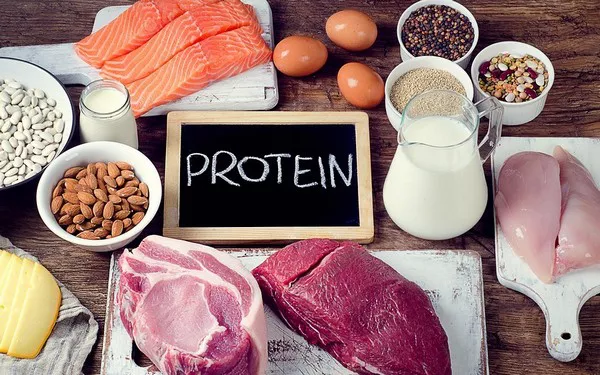As we age, our nutritional needs change, and one crucial component that deserves our attention is protein. Protein plays a vital role in maintaining overall health, especially in older adults. It supports muscle strength, immune function, and wound healing, among other essential functions. But how much protein do seniors need daily? In this comprehensive article, we will explore the protein requirements for older adults, the importance of protein in their diets, and provide practical tips for meeting these nutritional needs.
Understanding Protein’s Role in Senior Health
Protein is often referred to as the body’s building block because it plays a fundamental role in maintaining and repairing tissues. In seniors, adequate protein intake is particularly important for several reasons:
Preserving Muscle Mass: Aging is associated with a natural loss of muscle mass, known as sarcopenia. A higher protein intake can help slow down this process, promoting muscle strength and function.
Wound Healing: Protein is essential for the body’s ability to heal wounds and recover from surgeries or injuries. Seniors may face longer recovery times, making protein even more critical.
Immune Support: The immune system relies on proteins to produce antibodies and fight infections. A well-balanced diet with sufficient protein can help seniors maintain a robust immune response.
Maintaining Bone Health: While protein is not typically associated with bone health, it plays a role in maintaining bone density and strength, which is crucial for preventing fractures in older adults.
Satiety and Weight Management: Protein-rich foods can help seniors feel full and satisfied, potentially aiding in weight management, as maintaining a healthy weight is essential for overall well-being.
Protein Requirements for Seniors
The Recommended Dietary Allowance (RDA) for protein intake is determined by age, sex, and activity level. For seniors, the RDA varies depending on individual factors, but general guidelines can help determine daily protein needs.
General Guidelines: In general, older adults should aim for 1.0 to 1.2 grams of protein per kilogram of body weight per day. This means that a sedentary senior weighing 68 kilograms (150 pounds) should consume 68 to 82 grams of protein daily. However, these guidelines can vary based on individual health status and activity level.
Higher Protein Needs: Seniors who are physically active, recovering from an illness or surgery, or managing chronic conditions may require more protein. In such cases, protein needs can range from 1.2 to 2.0 grams per kilogram of body weight per day.
Individual Assessment: It’s essential to consider individual health and dietary factors when determining protein requirements. Consulting a healthcare provider or registered dietitian can provide personalized guidance based on a senior’s unique circumstances.
Sources of Protein for Seniors
Meeting daily protein requirements can be achieved through a variety of dietary sources. Seniors should focus on incorporating both animal and plant-based protein options into their meals. Here are some excellent sources of protein:
Lean Meats: Skinless poultry, lean cuts of beef or pork, and fish are rich in protein and low in saturated fats. Baking, grilling, or broiling meats can make them even healthier choices.
Dairy Products: Milk, yogurt, and cheese provide both protein and essential calcium for bone health. Opt for low-fat or fat-free options to limit saturated fat intake.
Eggs: Eggs are a versatile source of protein. Seniors can enjoy them scrambled, poached, or in omelets. The egg yolk also contains essential nutrients like vitamin B12.
Legumes: Beans, lentils, and peas are plant-based protein sources that are high in fiber, making them excellent for digestive health. They are also low in fat and can be included in soups, salads, and side dishes.
Nuts and Seeds: Almonds, peanuts, chia seeds, and sunflower seeds provide protein and healthy fats. These can be enjoyed as snacks, added to yogurt, or used as toppings for cereals.
Tofu and Tempeh: These soy-based products are rich in protein and can be used in various savory and sweet dishes, such as stir-fries and smoothies.
Quinoa: This whole grain is unique because it contains all nine essential amino acids, making it a complete protein source. It can be used as a base for salads, side dishes, or breakfast bowls.
Practical Tips for Seniors
Prioritize Protein-Rich Breakfasts: Starting the day with a protein-rich breakfast can help seniors meet their daily protein goals. Options include Greek yogurt with berries and nuts, scrambled eggs with vegetables, or a protein smoothie.
Frequent, Balanced Meals: Seniors can benefit from spreading protein intake throughout the day by including it in every meal and snack. This approach helps provide a steady supply of amino acids for tissue maintenance and repair.
Stay Hydrated: Proper hydration is essential to support the body’s ability to utilize protein effectively. Seniors should drink an adequate amount of fluids, especially if consuming protein supplements.
Consider Protein Supplements: In some cases, seniors may find it challenging to meet their protein needs through whole foods alone. Protein supplements or meal replacement shakes can be a convenient way to bridge the gap.
Seek Professional Guidance: Consulting a registered dietitian or healthcare provider can help seniors create a personalized nutrition plan that considers their unique dietary requirements, preferences, and any underlying health conditions.
Conclusion
Protein is a critical component of a senior’s diet, supporting muscle health, immune function, wound healing, and overall well-being. While protein requirements may vary based on individual factors, aiming for 1.0 to 1.2 grams of protein per kilogram of body weight per day is a general guideline for seniors. By incorporating a variety of protein sources into their meals, staying hydrated, and seeking professional guidance when needed, older adults can ensure they meet their daily protein needs and maintain their health as they age gracefully.


